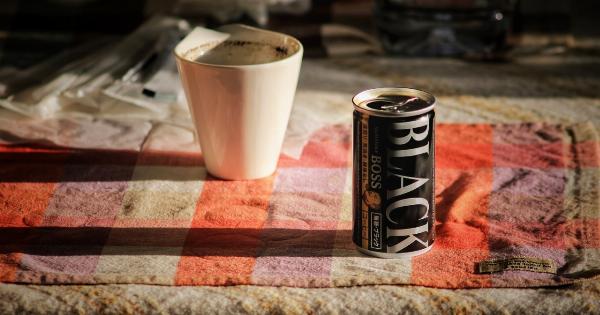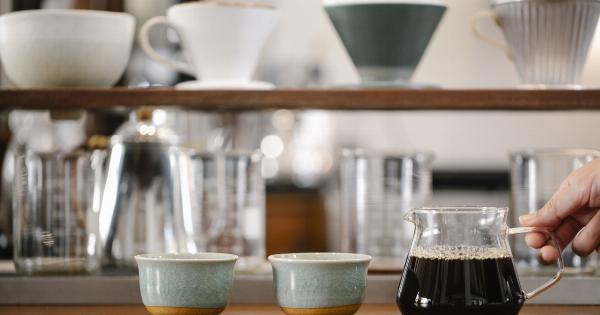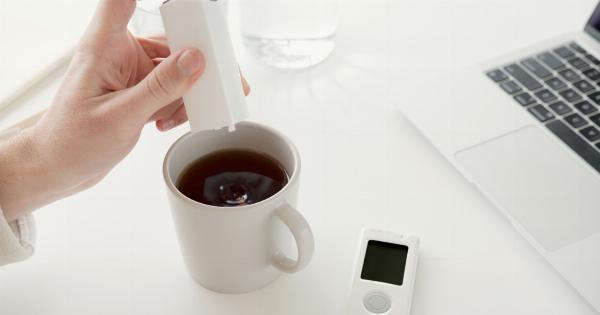Coffee is one of the most consumed beverages in the world, known for its energizing effects due to its caffeine content. Many people rely on a cup of coffee to kick-start their day or keep them awake during long nights.
However, when it comes to consuming coffee during colds, there are several factors to consider. In this article, we will explore the effects of coffee consumption during colds and discuss important considerations to keep in mind.
1. The impact of caffeine on cold symptoms
Caffeine, the primary active component in coffee, is a central nervous system stimulant. It can temporarily boost alertness and energy levels, acting as a natural pick-me-up.
However, during a cold, caffeine may not have the same positive impact on your symptoms. Colds often bring about fatigue and exhaustion, and caffeine can further dehydrate the body, making these symptoms worse. Additionally, caffeine can interfere with your sleep, which is vital for your body’s recovery process.
2. Dehydration concerns
When you have a cold, hydration is crucial to help thin and loosen mucus, making it easier to expel. However, caffeine is a diuretic, meaning it increases urine production and can lead to dehydration.
Consuming too much coffee while you have a cold can exacerbate dehydration symptoms and potentially prolong your recovery time. It is important to balance your coffee intake with an increased fluid intake, preferably with water or other hydrating beverages.
3. The immune system’s response
Your immune system plays a vital role in fighting off infections and restoring health. While coffee does provide some antioxidant benefits, excessive consumption during a cold can potentially hinder your immune system’s response.
Caffeine can suppress certain immune cells and interfere with the production of antibodies, which are essential in fighting off pathogens. It is important to strike a balance and not rely solely on coffee to boost your immune system.
4. Potential interactions with medications
If you are taking over-the-counter cold medications or antibiotics, it is essential to consider potential interactions with coffee.
Certain medications may interact negatively with caffeine, leading to increased side effects such as restlessness, irritability, or rapid heartbeat. Always read the labels of your medications and consult with your healthcare provider or pharmacist to understand any potential interactions.
5. Quality of sleep
Restful sleep is crucial for your body’s healing process, especially when you are battling a cold. While coffee can provide a temporary energy boost, it may interfere with your ability to fall asleep or achieve deep, restorative sleep.
It is important to prioritize sleep and consider reducing or eliminating coffee consumption during a cold, particularly closer to bedtime.
6. Individual sensitivity to caffeine
Every individual reacts differently to caffeine. Some people may be more sensitive to its effects, while others may tolerate higher doses without any significant issues. It is essential to be aware of your body’s response to coffee during a cold.
If you find that coffee worsens your symptoms or makes you feel more fatigued, it may be best to avoid or limit its consumption until you recover.
7. Alternative hot beverages
If you typically rely on the warmth and comfort of a hot beverage during a cold, there are alternatives to coffee that can provide similar benefits.
Herbal teas, such as chamomile or peppermint, can help soothe throat discomfort and provide hydration without the caffeine content. Additionally, warm lemon water with honey can provide relief for a sore throat and is known for its immune-boosting properties.
8. Understanding moderation
Moderation is key when it comes to consuming coffee during a cold. It is important to listen to your body and adjust your intake accordingly.
Instead of relying solely on coffee for energy, consider incorporating other healthy habits, such as consuming nutritious foods, getting ample rest, and staying hydrated with water or herbal teas. Moderation will help ensure that you are supporting your body’s healing process without overwhelming it with excessive caffeine.
9. Seeking medical advice
If you have any concerns about consuming coffee or any other beverages during a cold, it is always wise to consult with a healthcare professional.
They can provide personalized advice based on your specific health condition, medications, and overall well-being. They may recommend alternatives or provide guidance on safely incorporating coffee into your routine during a cold.
10. Paying attention to your body
Ultimately, the most important aspect of coffee consumption during a cold is to listen to your body. Everyone’s experience with colds and coffee will be different. Monitor how your body responds to coffee and adjust accordingly.
If you find that it worsens your symptoms or makes you feel worse overall, it may be best to avoid it until you have recovered. Your body knows best, and practicing self-care is crucial during times of illness.





























